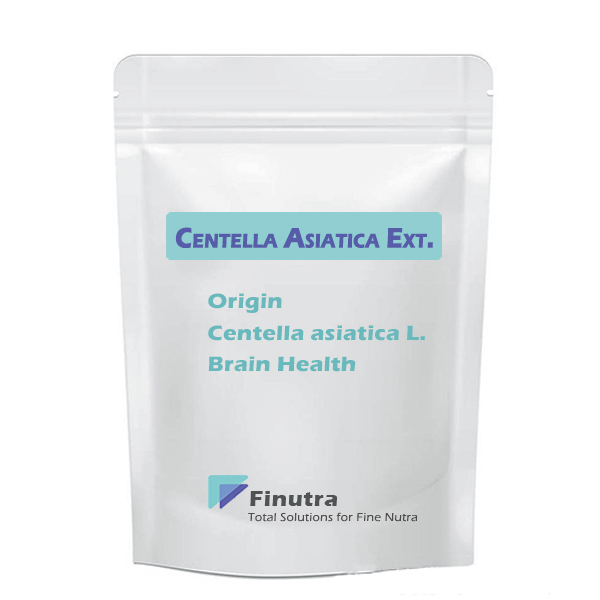It is a draft guidance
26-Aug-2012 - Last updated on 27-Aug-2012 at 16:26 GMT Curcumin granular

According to findings published in Toxicology and Applied Pharmacology, the cardiovascular effects of a multi-component extract were greater than those of p-synephrine, the predominant amine in bitter orange, which produced only “minimal effects on heart rate and blood pressure”.
In addition, the effects were increased when caffeine was included in the mix.
Led by Deborah Hansen from the Division of Personalized Nutrition and Medicine, US FDA/NCTR, the scientists note that many of the commercially available dietary supplements for weight loss involving bitter orange/synephrine are formulated with caffeine.
Growing presence in the market
Bitter orange is claimed to increase energy expenditure, facilitate the breakdown of fat and increase glucose uptake by muscles, and is widely used in weight management and sports nutrition supplement.
The ingredient’s profile increased following the FDA ban on ephedra in 2004 as it contains similar compounds and was favored by dietary supplements manufacturers as an ephedra substitute.
Some suppliers have also reported a surge in enquires from manufacturers looking for alternatives to controversial ingredient DMAA in the wake of the FDA’s recent crackdown on the stimulant.
P-synephrine is not banned by WADA, the FDA or Health Canada, and the latter recently changed its guidelines and concluded that 1 to 50 mg per day is “not likely to cause any adverse health consequences”.
While concerns continue to be raised that p-synephrine may increase blood pressure and heart rate, particularly when taken in combination with other stimulants such as caffeine, such claims have been dismissed by suppliers.
In addition, Sidney J. Stohs, dean emeritus of the Creighton University School of Pharmacy and Health Professions, recently concluded that safety concerns and adverse events associated with bitter orange and p-synephrine are ‘unwarranted and unjustified’ (Journal of Functional Foods, 2010, Vol. 2, pp. 235-238).
“Since many of the adverse events associated with ephedra use involved the cardiovascular system, the purpose of this investigation was to evaluate effects of synephrine and a bitter orange extract on the cardiovascular system of rats,” explained Hansen and her co-workers.
The FDA scientists studied the effects of a bitter orange extract (6% synephrine) or pure synephrine (95% synephrine) on blood pressure and heart rate in lab animals, with or without additional caffeine. Rats were given doses equivalent to 10 or 50 mg synephrine/ per kg body weight. Both extracts were obtained from Modern Nutrition and Biotech (Appleton, WI).
No effects on weight loss, food consumption or survivability were observed in female rats for either synephrine or a bitter orange extract after 28 days of feeding, they said.
The FDA researchers concluded: “Synephrine, either as the bitter orange extract or as pure synephrine, increased heart rate and blood pressure. Animals treated with 95% synephrine showed minimal effects on heart rate and blood pressure; more significant effects were observed with the bitter orange extract suggesting that other components in the botanical can alter these physiological parameters. The increases in heart rate and blood pressure were more pronounced when caffeine was added.”
Ed Wyszumiala, general manager of dietary supplements programs at analytical testing firm NSF International, told NutraIngredients-USA that the study was “very interesting, well put together and researched.
“As a stimulant ingredient, synephrine would increase heart rate and blood pressure. It’s the reason it was used as the replacement to ephedra in re-formulations in 2004, and now for many DMAA containing products in 2012,” he explained.
“It appears that the FDA is looking closely at stimulant based ingredients and products. I’m not sure what would drive them to conduct this study, but maybe the agency is seeing some market surveillance data based on submitted AER’s and is conducting research to check for the safety of certain stimulant ingredients.
“There have also been a concerns with the lack of safety data of how multiple stimulant based products work, as the stimulants can exacerbate the effects of one another, and little to no toxicological data has been collected on what the effects are in humans,” said Wyszumiala.
Dan Fabricant, PhD, director of the Division of Dietary Supplement Programs at the FDA and co-author on the new study, told NutraIngredients-USA that, while the agency cannot comment on the practice of replacing DMAA in supplements with synephrine, “we can say is that it is the responsibility of the manufacturer or distributor of the dietary supplements to ensure that they are safe under the conditions of use, and all appropriate laws and regulations are met when marketing the products.”
Dr Fabricant could not confirm if additional studies into synephrine were being planned by the agency.
Source: Toxicology and Applied Pharmacology Volume 261, Pages 236-247, doi:10.1016/j.taap.2012.04.006 “Physiological effects following administration of Citrus aurantium for 28 days in rats” Authors: D.K. Hansen, N.I. George, G.E. White, L.S. Pellicore, A. Abdel-Rahman, D. Fabricant
Copyright - Unless otherwise stated all contents of this web site are © 2023 - William Reed Ltd - All Rights Reserved - Full details for the use of materials on this site can be found in the Terms & Conditions
Related topics Research Polyphenols Weight management
Content provided by BIONAP BIOACTIVE NATURAL PRODUCTS | 12-Oct-2023 | Product Brochure
Bionap also this year will showcase a selection of sustainable plant-based health and wellness solutions at booth 5345 SupplySide West 2023 that will...
Content provided by ADM: Innovation that Feeds the Future | 10-Oct-2023 | White Paper
A growing body of evidence shows gut health can affect digestive health, well-being, and many health areas in between.
Content provided by ADM | 27-Sep-2023 | Case Study
Are you ready to transform the way consumers support their metabolic health? With 60% of consumers noting that they intend to improve their general health...
Content provided by Sabinsa Corporation | 26-Sep-2023 | Product Presentation
Curcousin, Sabinsa’s brand of calebin-A was shown in clinical studies to promote metabolic health in addition to supporting healthy weight management....
Posted by Mike Budd , 25 September 2012 - 17:53 GMT

Myricetin Posted by chris aylmer , 30 August 2012 - 10:31 GMT